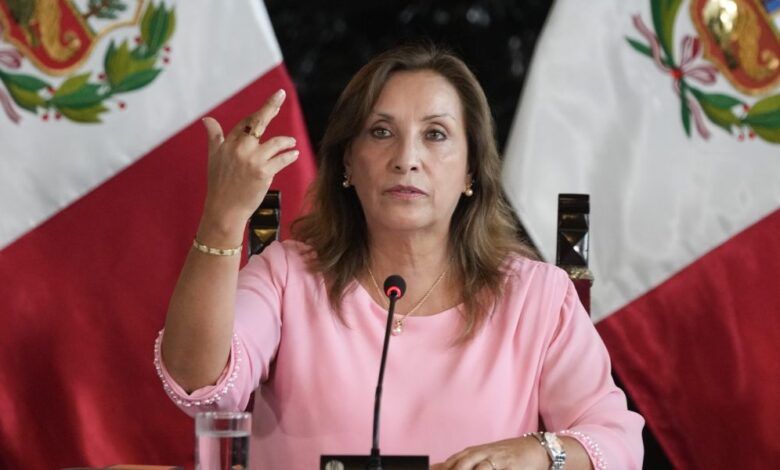Peru’s Lawmakers Impeach President Over Corruption Scandals

U.S. President Donald Trump has reignited global trade tensions after announcing a new 100% tariff on China, set to take effect on November 1, 2025.
The move marks one of the sharpest escalations in the long-running trade conflict between Washington and Beijing.
Trump made the announcement on his social media platform, Truth Social, accusing China of taking an “extraordinarily aggressive” stance by planning large-scale export controls on almost every product it makes.
He described the Chinese action as “a moral disgrace” and a deliberate attempt to undermine global trade stability.
According to Trump, the tariffs will apply “over and above” existing duties already imposed on Chinese goods.
He warned that the implementation date could be moved forward if China continues with its export restrictions.
The president’s outburst followed Beijing’s decision to expand export limits on rare earth minerals, a move that could hit Western manufacturing and technology sectors.
These minerals are vital for producing semiconductors, electric vehicles, and military hardware.
Earlier in the day, Trump lashed out at Chinese President Xi Jinping, saying he saw “no reason” to meet him at the upcoming APEC summit in South Korea.
He accused Xi of using export controls to gain leverage in ongoing trade talks.
However, Trump later said the meeting had not been officially canceled but remained uncertain.
Beijing’s action has raised alarms within the U.S. administration, as officials fear that China’s dominance in rare-earth production could cripple American industries.
The Trump administration has been pushing domestic firms to ramp up mining and production to reduce dependence on Chinese supply chains.
To counter China’s control, Washington recently announced a $400 million investment in MP Materials Corp, the only U.S. rare-earth producer, alongside plans for a price-support mechanism to boost local output.
But experts warn that developing a competitive supply chain could take years.
Meanwhile, Wall Street reacted sharply to Trump’s announcement.
The Dow Jones fell 879 points, while the S&P 500 dropped 2.7%, and the Nasdaq plunged 3.5%.
Investors fear the revived trade war could disrupt global markets, slow holiday-season imports, and spark another inflation surge.
Trade tensions have been brewing for months.
Both nations have tightened export controls, targeted technology firms, and investigated each other’s major companies.
The U.S. has also imposed new restrictions on AI chips, aerospace equipment, and software tools sold to China.
The latest escalation, they warn, may push the global economy toward another trade shock similar to the tariff wars of 2018 and 2019.
Trump defended his decision, insisting that America must “financially counter” China’s “hostile order.”
He added, “For every element they monopolize, we have two.”
As tensions mount, investors and diplomats alike brace for a turbulent November.
Post Views: 187





